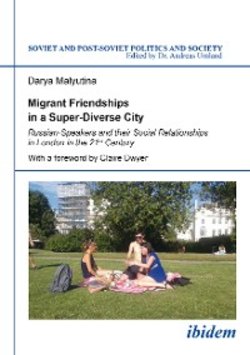Описание книги
This timely book offers an integrative and critical approach to the conceptualization of diversity of social ties in contemporary urban migrant populations. It explores the informal relationships of migrants in London and how the construction and the dynamics of their social ties function as a part of urban sociality within the super?diversity of London.
Based on the results of a qualitative study of Russian-speaking migrants, it targets the four main themes of transnationalism, ethnicity, cosmopolitanization, and friendship. Acknowledging the complexity of the ways in which contemporary migrants rely on social relationships, the author argues that this complexity cannot be fully grasped by theories of transnationalism or explanations of ethnic communities alone. Instead, one can gather a closer understanding of migrant sociality when adding the analysis of informal relationships in different locations and with different subjects. This book suggests that friendship should be seen as an important concept for all research on migrant social connections.
Based on the results of a qualitative study of Russian-speaking migrants, it targets the four main themes of transnationalism, ethnicity, cosmopolitanization, and friendship. Acknowledging the complexity of the ways in which contemporary migrants rely on social relationships, the author argues that this complexity cannot be fully grasped by theories of transnationalism or explanations of ethnic communities alone. Instead, one can gather a closer understanding of migrant sociality when adding the analysis of informal relationships in different locations and with different subjects. This book suggests that friendship should be seen as an important concept for all research on migrant social connections.
